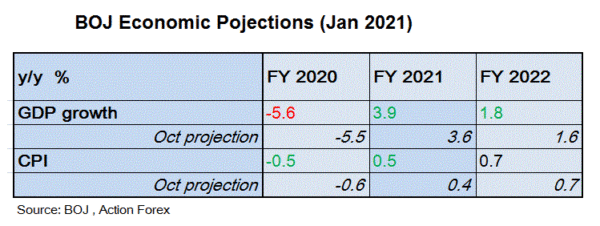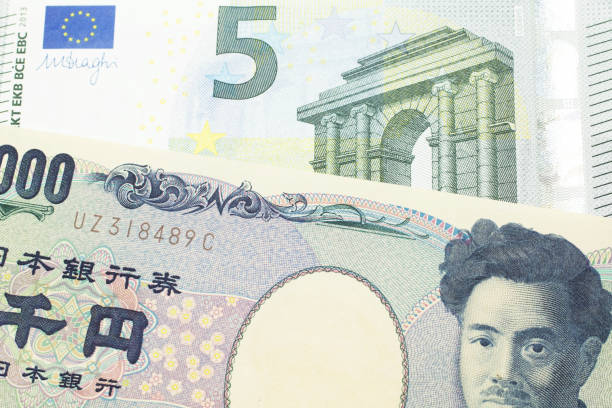The January BOJ is non-eventful. Cautioning that risks to the economic outlook is tilted to the downside, the central bank announced to leave all its stimulus measures unchanged. In contrast to speculations, the central bank did not adjust the implicit trading band of the 10-year JGB yield.
There is a minor tweak in economic assessment. As noted in the policy statement, “Japan’s economy has picked up as a trend, although it has remained in a severe situation due to the impact of COVID-19 at home and abroad”. Addition of the phrase “as a trend” probably signals that the improvement might be temporary derail by resurgence of coronavirus and restrictive measures related the state of emergency. BOJ continued to warn of the high uncertainty in the outlook, suggesting that risks to both economic activity and prices are skewed to the downside. It anticipated slightly worse contraction in FY2020, while revised higher the growth outlook for FY 2021 and FY 2022.
On the monetary policy, the central bank left all the stimulus measures intact. The policy rate stays unchanged at -0.1%, while asset purchases will continue in order to keep the 10-year JGB yields at around 0% (yield curve control). Despite market expectations, there has been no mention on widening of the yield’s trading range. BOJ also left the QE program unchanged, pledging to buy ETFs and J-REITs at annual paces of about 12 trillion yen (maximum) and about 180 billion yen (maximum), respectively. The forward guidance stays unchanged, with BOJ pledging to continue with “Quantitative and Qualitative Monetary Easing (QQE) with Yield Curve Control, so as to “achieve the price stability target of 2%, as long as it is necessary for maintaining that target in a stable manner”.
